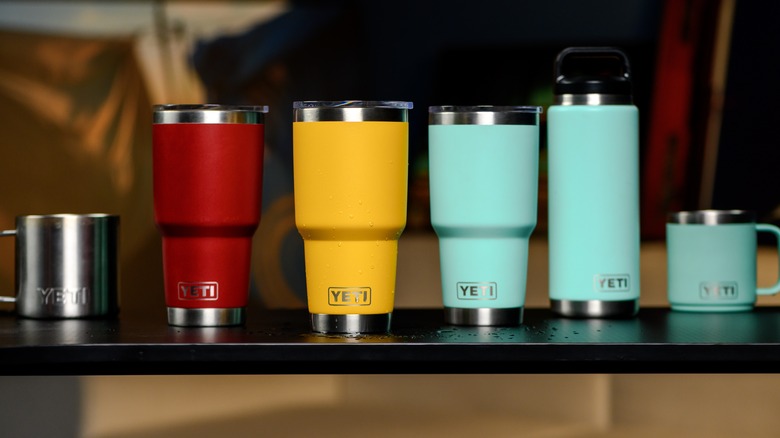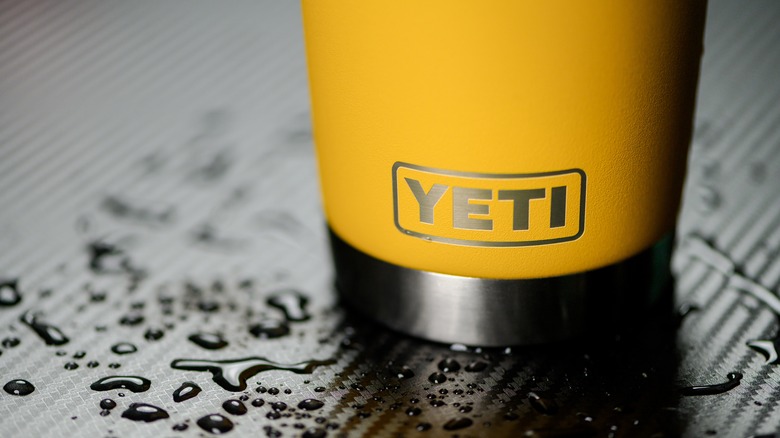The Fascinating History Of YETI Drinkware
There's a saying that necessity is the mother of invention. A couple of Texas brothers took that old adage to heart almost 20 years ago when they engineered the YETI cooler. For the uninitiated, YETI is to coolers and drinkware what beluga caviar is to less expensive stand-ins like salmon roe. They both get the job done, but one is ultra-luxe and pricey while the other is basic and inexpensive. Here's the backstory. Frustrated by the less-than-durable ice chests available at the time, Roy and Ryan Seiders — serious outdoorsmen and avid anglers — took matters into their own hands.
The brothers weren't new to entrepreneurial endeavors. Their father, a high school industrial arts teacher by trade, invented a fishing rod sealant when they were kids. He launched a company that's in business almost four decades later, so it wasn't a huge stretch when the brothers decided to design the ice chest of their dreams. They wanted a cooler that would hold up in the most challenging conditions. A sturdy beast, strong enough to support the weight of an angler (serious fishermen often stand on their coolers to cast) that would maintain its temperature for days, not hours. Plus, it had to look good. And they did just that.
The catch? When you invent an indestructible product, it limits the market for repeat sales. But it also results in a loyal fanbase, a ready-made market for all things YETI, which they expanded to include stainless-steel drinkware. And the rest, they say, is history.
Build it and they will come
YETI's line-up of stainless-steel travel mugs and bottles hit the market in 2014 when the company introduced 20- and 30-ounce Rambler Tumblers. The Colster can holder and 10-ounce Rambler Lowball debuted in 2015, followed in 2016 by 18-, 36-, and 64-ounce Rambler bottles. In 2016, financial specialist Kathleen Smith told Texas Monthly, "Drinkware was an important diversification for them. Consumers love it." Smith's observation was spot on. At the time, sales of YETI-branded travel mugs and accessories accounted for 48% of the company's total annual sales or about $118 million. Fast forward to 2023, and the sale of YETI drinkware accounted for more than $1 billion in annual sales, more than half of the company's $1.65 billion revenue.
The appeal of the brand has expanded to include an aspirational market of suburban dwellers intrigued by the brand's rugged reputation. That market keeps growing while the company continues to roll out products to satisfy the appetite for all things YETI. These days, the product roster includes many varieties of drinkware in addition to camping gear and seasonal palettes, going head-to-head with upmarket camp gear brands like Stanley. The manufacturing standards remain as stringent as ever.
About the name, you're probably thinking, "Yeti, the legendary mountain wanderer known for ferocious strength and fortitude." That's part of the story. The Seiders brothers asked friends and family to vote on a list of 10 company names. Yeti wasn't the winner, but it was the only name anyone remembered.

